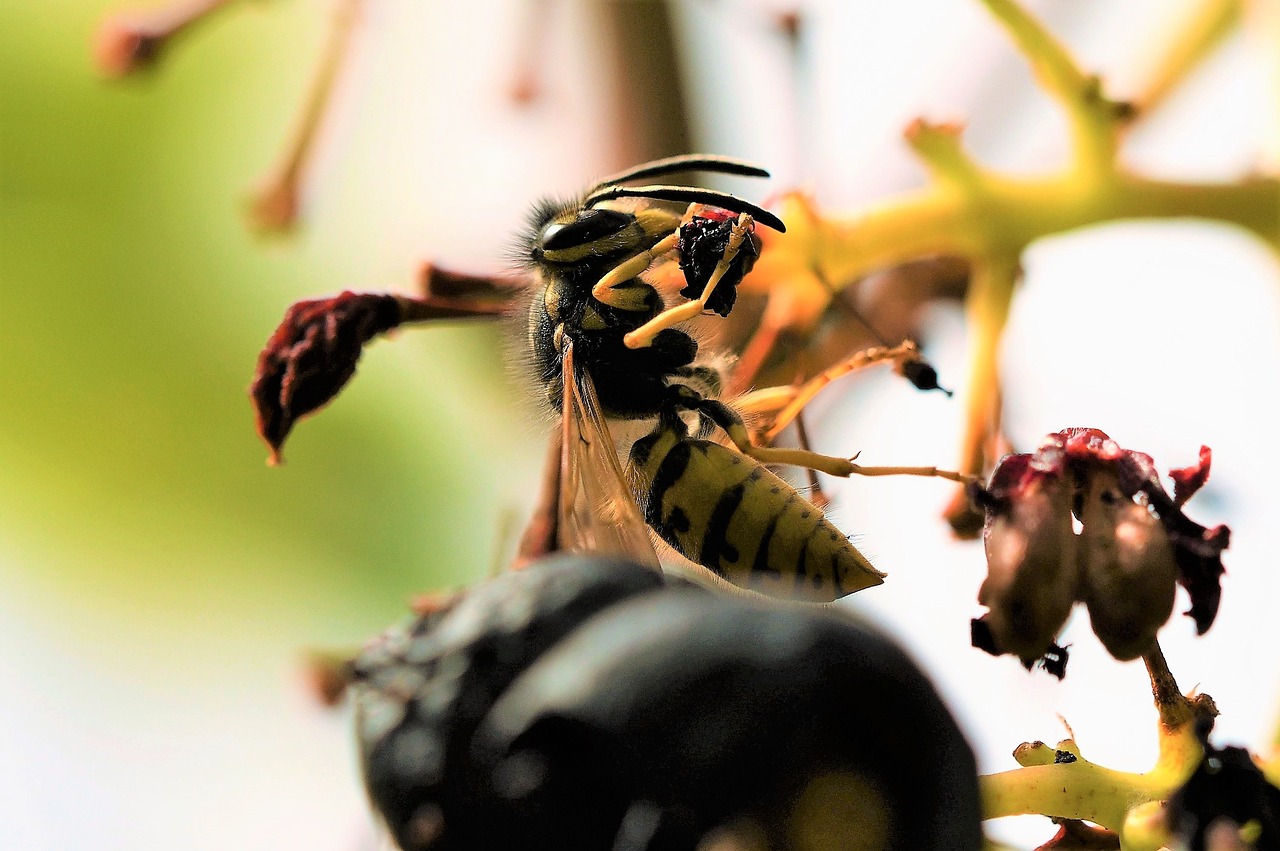First Aid for Pets with Allergies - Home Remedies
As pet owners, we all want the best for our furry friends, and dealing with allergies can be quite a challenge. Just like humans, pets can suffer from a variety of allergic reactions that can make them uncomfortable and irritable. Whether it's an itchy skin condition or an upset stomach, identifying these issues early on is crucial for their wellbeing. This article explores effective home remedies for managing pet allergies, providing guidance on identifying symptoms, natural treatments, and preventative measures to ensure your furry friends remain comfortable and healthy.
Pet allergies can arise from various sources, including food, pollen, and dust. It's essential to recognize that allergies are not just a nuisance; they can lead to serious health issues if left untreated. Think of your pet's body as a fortress, and allergens are the unwelcome invaders trying to breach the walls. When the immune system detects these invaders, it reacts, leading to the symptoms we see. Understanding the underlying causes is crucial for effective management and treatment. By keeping a close eye on your pet's environment and diet, you can help fortify their defenses against these pesky allergens.
Identifying allergy symptoms in pets is essential for timely intervention. Common signs include:
- Itching and Scratching: If your pet is constantly scratching or biting at their skin, it could be a sign of an allergic reaction.
- Redness and Inflammation: Look for red patches on the skin, which can indicate irritation.
- Gastrointestinal Issues: Vomiting or diarrhea can also be symptoms of food allergies.
These symptoms can significantly impact their quality of life, making it crucial to act quickly. Just like how we would feel miserable with a rash or upset stomach, our pets experience similar discomfort. So, if you notice these signs, it’s time to investigate further.
There are several natural remedies available to alleviate allergy symptoms in pets. These remedies can be a lifesaver, providing relief without the harsh chemicals often found in commercial products. For example, herbal treatments like chamomile and aloe vera can soothe irritated skin. Additionally, dietary adjustments such as incorporating omega-3 fatty acids can help reduce inflammation. Topical applications, like oatmeal baths, can also provide immediate relief. Think of these natural remedies as the gentle hug your pet needs when they're feeling under the weather.
Adjusting your pet's diet can help manage allergies effectively. Incorporating hypoallergenic foods and eliminating potential allergens can lead to significant improvements in their overall health and comfort. It’s like giving your pet a fresh start! When considering dietary changes, look for foods that contain limited ingredients and are free from common allergens like wheat, corn, and soy. You might be surprised how much better your pet feels with the right nutrition. Just remember to introduce new foods gradually to avoid upsetting their stomach.
Creating a pet-friendly home environment can significantly reduce allergy triggers. Regular cleaning is a must; think of it as decluttering your pet’s space from allergens. Using air purifiers can help filter out dust and pollen, making the air fresher and easier for your pet to breathe. Additionally, minimizing exposure to allergens by keeping windows closed during high pollen seasons can make a world of difference. Remember, a clean home is a happy home for your furry companions!
While home remedies can be effective, knowing when to seek veterinary assistance is vital. If your pet shows persistent symptoms or severe reactions, it’s time to consult a professional. Just like we might need a doctor when we can’t shake off a cold, our pets may need medical evaluation and possible intervention for their allergies. A veterinarian can provide tailored advice and treatment options that can help your pet feel better faster.
Taking proactive steps can help prevent allergies in pets. Regular grooming not only keeps your pet looking great but also helps remove allergens from their fur. Avoiding known allergens, such as specific foods or environmental triggers, is crucial. Maintaining a clean living space is another key strategy to minimize allergy risks. Think of it as a shield against allergens, ensuring your pet stays safe and comfortable.
Keeping track of your pet's response to home remedies and environmental changes is essential. Regular monitoring can help you adjust strategies and ensure your pet remains comfortable and healthy. Consider keeping a journal of symptoms and remedies tried, which can provide valuable insights over time. It’s like being a detective for your pet’s health!
Q: How can I tell if my pet has allergies?
A: Look for symptoms like itching, redness, and gastrointestinal issues. If you notice these signs, consider consulting your vet.
Q: Are there any specific foods that can help with allergies?
A: Yes, hypoallergenic foods and those rich in omega-3 fatty acids can be beneficial for pets with allergies.
Q: When should I take my pet to the vet for allergies?
A: If your pet shows persistent symptoms or has severe reactions, it’s best to seek veterinary assistance.

Understanding Pet Allergies
This article explores effective home remedies for managing pet allergies, providing guidance on identifying symptoms, natural treatments, and preventative measures to ensure your furry friends remain comfortable and healthy.
Pet allergies can be a real challenge for both pets and their owners. Just like humans, our furry companions can experience allergic reactions to a variety of substances. These allergies can arise from multiple sources, including food, pollen, dirt, and even dust mites. It's essential to recognize the signs and understand the underlying causes of these allergies to manage them effectively.
When your pet is allergic, their immune system reacts to a harmless substance as if it were a threat. This hypersensitivity can lead to a range of uncomfortable symptoms. For instance, a pet allergic to pollen might exhibit symptoms only during certain seasons, while a pet with food allergies could react every time they consume the offending ingredient. Understanding these triggers is crucial for effective management.
Some common allergens include:
- Food Allergens: Ingredients like beef, chicken, dairy, and grains can cause allergies in some pets.
- Environmental Allergens: Pollen from trees, grasses, and weeds can be significant triggers, especially during springtime.
- Flea Allergies: Even a single flea bite can lead to severe reactions in sensitive pets.
- Dust and Mold: Indoor allergens such as dust mites and mold spores can also provoke allergic responses.
Recognizing the signs of allergies is the first step toward providing your pet with relief. If you suspect your pet has allergies, it's vital to consult with a veterinarian. They can help identify specific allergens through testing and guide you toward effective treatment options.
In summary, understanding pet allergies involves recognizing the various sources of allergens and their effects on your pet's health. By staying informed and observant, you can help your furry friend live a more comfortable and enjoyable life.
Identifying allergy symptoms in pets is essential for timely intervention. Common signs include itching, redness, and gastrointestinal issues, which can significantly impact their quality of life.
There are several natural remedies available to alleviate allergy symptoms in pets. These remedies include herbal treatments, dietary adjustments, and topical applications that can provide relief without harsh chemicals.
Adjusting your pet's diet can help manage allergies effectively. Incorporating hypoallergenic foods and eliminating potential allergens can lead to significant improvements in their overall health and comfort.
Creating a pet-friendly home environment can reduce allergy triggers. Regular cleaning, using air purifiers, and minimizing exposure to allergens can help maintain a healthier space for your furry companions.
While home remedies can be effective, knowing when to seek veterinary assistance is vital. Persistent symptoms or severe reactions require professional evaluation and possible medical intervention for your pet's safety.
Taking proactive steps can help prevent allergies in pets. Regular grooming, avoiding known allergens, and maintaining a clean living space are key strategies to minimize allergy risks.
Keeping track of your pet's response to home remedies and environmental changes is essential. Regular monitoring can help you adjust strategies and ensure your pet remains comfortable and healthy.
Q: What are the most common allergens for pets?
A: Common allergens include food ingredients like beef and dairy, environmental factors such as pollen and dust, and flea bites.
Q: How can I tell if my pet has allergies?
A: Look for symptoms like excessive itching, redness, sneezing, or gastrointestinal issues. If you notice these signs, consult your veterinarian.
Q: Are there any home remedies for pet allergies?
A: Yes, natural remedies can include herbal treatments, dietary changes, and topical applications to soothe symptoms.
Q: When should I take my pet to the vet for allergies?
A: If symptoms persist or worsen, or if your pet has severe reactions, it's essential to seek veterinary care.

Common Symptoms of Allergies in Pets
Identifying allergy symptoms in pets is crucial for ensuring their well-being and comfort. Just like humans, our furry friends can experience various allergic reactions that can significantly impact their quality of life. But how do you know if your pet is suffering from allergies? The signs can sometimes be subtle, yet they often manifest in distinct ways that any attentive pet owner can recognize. Common symptoms include:
- Itching and Scratching: One of the most noticeable signs is persistent itching. If you see your pet scratching or biting at their skin, especially in areas like the paws, ears, or belly, it could indicate an allergic reaction.
- Redness and Inflammation: Allergies can lead to redness and inflammation of the skin. This can appear as rashes or hot spots, which are areas of irritated skin that may become infected if not treated.
- Gastrointestinal Issues: Allergies can also manifest through digestive problems. If your pet is experiencing vomiting, diarrhea, or excessive gas, it may be a sign of a food allergy or sensitivity.
- Respiratory Symptoms: Pets can suffer from respiratory issues due to allergies, which may present as sneezing, coughing, or difficulty breathing. If you notice your pet wheezing or having a hard time catching their breath, it's essential to take action.
- Ear Infections: Frequent ear infections can be a telltale sign of allergies. If your pet is shaking their head excessively or scratching at their ears, it may indicate an underlying allergy issue.
Understanding these symptoms can help you act quickly. For instance, if your dog is constantly scratching, it might be more than just a case of dry skin; it could indicate an allergy that needs addressing. Similarly, if your cat seems unusually lethargic and has a runny nose, it could be a response to environmental allergens. The sooner you recognize these signs, the better equipped you'll be to help your pet feel comfortable again.
Moreover, it's important to note that some pets may exhibit multiple symptoms simultaneously, making it even more critical to monitor their behavior closely. If you suspect your pet is suffering from allergies, consider keeping a diary of their symptoms to help your veterinarian make an accurate diagnosis. This record can include details like:
| Date | Symptoms Observed | Possible Triggers |
|---|---|---|
| 01/01/2023 | Itching, Redness | New food |
| 01/05/2023 | Sneezing, Coughing | Pollen season |
| 01/10/2023 | Ear scratching | Bathing product |
By documenting these occurrences, you can provide your veterinarian with valuable insights that may lead to a more effective treatment plan. Remember, while home remedies can be beneficial, knowing when to seek professional help is vital. If your pet displays severe symptoms or if their condition worsens, don't hesitate to contact your veterinarian.

Natural Remedies for Allergies
This article explores effective home remedies for managing pet allergies, providing guidance on identifying symptoms, natural treatments, and preventative measures to ensure your furry friends remain comfortable and healthy.
Pet allergies can arise from various sources, including food, pollen, and dust. Recognizing the signs and understanding the underlying causes is crucial for effective management and treatment.
Identifying allergy symptoms in pets is essential for timely intervention. Common signs include itching, redness, and gastrointestinal issues, which can significantly impact their quality of life.
When it comes to alleviating allergy symptoms in our beloved pets, natural remedies can be a game-changer. Many pet owners are turning to holistic approaches to help their furry friends find relief without the side effects often associated with conventional medications. One of the most popular natural remedies is the use of herbal treatments, which can include ingredients like chamomile, calendula, and nettle. These herbs are known for their anti-inflammatory properties and can be used in teas or topical applications.
Another effective method is making dietary adjustments. Incorporating omega-3 fatty acids into your pet’s diet can help combat inflammation and improve skin health. Fish oil supplements or foods rich in omega-3s, like salmon and flaxseed, can work wonders. Additionally, probiotics can help strengthen your pet's gut health, which in turn can boost their immune system and reduce allergic reactions.
Topical applications also play a significant role in managing allergies. For instance, a soothing oatmeal bath can provide immediate relief from itching and irritation. Simply blend plain oatmeal into a fine powder and add it to your pet's bathwater. This not only soothes the skin but also creates a protective barrier that helps retain moisture.
Furthermore, you might consider essential oils, but it's crucial to use them with caution. Oils like lavender and chamomile can be calming and may help alleviate some allergy symptoms. However, always consult with a veterinarian before introducing essential oils to your pet's routine, as some can be toxic to animals.
In summary, natural remedies can be an effective way to manage your pet's allergies. By incorporating herbal treatments, adjusting their diet, and utilizing topical applications, you can help your furry friend find relief and improve their overall well-being. Remember, though, that every pet is unique, and what works for one may not work for another. Always monitor your pet's response to any new treatment and consult your veterinarian if you have any concerns.
Adjusting your pet's diet can help manage allergies effectively. Incorporating hypoallergenic foods and eliminating potential allergens can lead to significant improvements in their overall health and comfort.
Creating a pet-friendly home environment can reduce allergy triggers. Regular cleaning, using air purifiers, and minimizing exposure to allergens can help maintain a healthier space for your furry companions.
While home remedies can be effective, knowing when to seek veterinary assistance is vital. Persistent symptoms or severe reactions require professional evaluation and possible medical intervention for your pet's safety.
Taking proactive steps can help prevent allergies in pets. Regular grooming, avoiding known allergens, and maintaining a clean living space are key strategies to minimize allergy risks.
Keeping track of your pet's response to home remedies and environmental changes is essential. Regular monitoring can help you adjust strategies and ensure your pet remains comfortable and healthy.
Q: Can I use human allergy medications on my pet?
A: It’s best to consult your veterinarian before giving any human medications to your pet, as some can be harmful or even toxic.
Q: How long does it take for natural remedies to work?
A: The effectiveness of natural remedies can vary depending on the individual pet and the severity of their allergies. Some may see improvements within days, while others may take weeks.
Q: Are there specific breeds more prone to allergies?
A: Yes, certain breeds are more susceptible to allergies, including Bulldogs, Retrievers, and Terriers. However, any pet can develop allergies at any time.

Dietary Changes to Consider
When it comes to managing your pet's allergies, dietary changes can play a pivotal role. Just like humans, our furry friends can react negatively to certain foods, which can exacerbate their allergy symptoms. So, what can you do to help them? First, consider switching to hypoallergenic dog or cat food. These specially formulated diets are designed to minimize the risk of allergic reactions by using limited ingredients and avoiding common allergens. Brands often use alternative protein sources like duck, venison, or even fish, which might be less likely to trigger a response.
In addition to switching foods, it's essential to be aware of potential allergens in your pet's current diet. Common culprits include:
- Beef
- Dairy
- Wheat
- Chicken
- Eggs
By eliminating these ingredients, you can significantly reduce the chances of triggering an allergic reaction. If you're unsure which foods to avoid, consider consulting with your veterinarian. They may recommend an elimination diet, where you gradually remove potential allergens and monitor your pet's response.
Moreover, incorporating natural supplements can also be beneficial. Omega-3 fatty acids, for instance, are known for their anti-inflammatory properties and can help soothe irritated skin. You can find these in fish oil or flaxseed oil. Just be sure to discuss any new additions to your pet's diet with your vet to ensure they're safe and appropriate.
Finally, don't forget to keep your pet hydrated! Fresh, clean water is crucial for their overall health and can assist in flushing out allergens from their system. A well-balanced diet, rich in nutrients and free from potential allergens, can lead to a happier, healthier pet. Remember, every pet is unique, so what works for one might not work for another. It’s all about finding the right balance that keeps your furry friend comfortable and thriving!
Q: How do I know if my pet has a food allergy?
A: Look for symptoms such as itching, redness, gastrointestinal issues, or ear infections. If you suspect a food allergy, consult your veterinarian for guidance.
Q: Can I make homemade food for my pet with allergies?
A: Yes, but it's crucial to ensure the diet is balanced and meets all your pet's nutritional needs. Consulting with a vet or a pet nutritionist is highly recommended.
Q: How long does it take to see improvements after changing my pet's diet?
A: It can take several weeks to notice significant changes, so be patient and consistent with the new diet while monitoring your pet’s symptoms.

Home Environment Adjustments
Creating a pet-friendly home environment is crucial for managing allergies effectively. Just like we thrive in comfortable spaces, our furry friends deserve an environment that minimizes their exposure to allergens. Imagine your home as a sanctuary, where every corner is designed to keep your pet safe and comfortable. This can be achieved through a combination of regular cleaning, strategic placement of air purifiers, and thoughtful adjustments to their living space.
First and foremost, regular cleaning is key. Dust, pollen, and pet dander can accumulate quickly, turning your cozy abode into a breeding ground for allergens. Make it a habit to vacuum your floors and furniture at least once a week. Use a vacuum equipped with a HEPA filter to trap tiny particles that can trigger allergic reactions. Don't forget to wash your pet's bedding regularly. A quick wash in hot water can eliminate any lurking allergens, making their sleeping area a clean and safe haven.
In addition to cleaning, consider the air quality in your home. Air purifiers can be a game changer. They work by filtering out allergens from the air, allowing your pet to breathe easier. Look for purifiers that have HEPA filters and are specifically designed for pet owners. Placing these purifiers in areas where your pet spends the most time can help significantly reduce airborne allergens and improve their overall comfort.
Another important adjustment involves minimizing the clutter in your home. The more items you have, the more places there are for dust and allergens to hide. Keep surfaces clear and opt for easy-to-clean materials. For instance, choose furniture with smooth surfaces that can be wiped down easily. Additionally, consider using washable curtains and opting for hardwood or tile floors instead of carpets, which can trap allergens.
Lastly, be mindful of your pet’s space. Designate an area in your home that is strictly for your pet, away from high-traffic zones. This can be their cozy corner with their bed, toys, and food bowls. By keeping their space clean and free from allergens, you can create a comforting retreat that helps alleviate allergy symptoms. Remember, a little effort in adjusting your home environment can make a world of difference in your pet's quality of life.
- What are some signs that my pet might have allergies? Look for symptoms such as excessive itching, redness of the skin, and gastrointestinal issues.
- How often should I clean my pet's bedding? It's best to wash their bedding at least once a week in hot water to eliminate allergens.
- Are air purifiers really effective for pet allergies? Yes, air purifiers with HEPA filters can significantly reduce airborne allergens, helping your pet breathe easier.
- What dietary changes can help with my pet's allergies? Incorporating hypoallergenic foods and eliminating known allergens from their diet can help improve their overall health.

When to Seek Veterinary Help
While home remedies can provide significant relief for your furry friends suffering from allergies, there are times when it's crucial to seek professional veterinary assistance. It's essential to be vigilant and recognize the signs that indicate your pet may need more than just your homemade treatments. After all, just like we sometimes need a doctor’s help when our home remedies fail, our pets may require expert intervention too.
One of the primary indicators that you should consult a veterinarian is if your pet exhibits persistent symptoms despite your efforts at home. If your pet continues to scratch excessively, has ongoing redness, or shows signs of distress, it's time to pick up the phone. Prolonged discomfort can lead to secondary infections or more severe health issues, which could have been avoided with timely veterinary care.
Another critical factor to consider is the severity of your pet's reaction. If you notice any of the following alarming symptoms, you should seek veterinary help immediately:
- Swelling: Any swelling, particularly around the face, eyes, or throat, can indicate a serious allergic reaction.
- Difficulty Breathing: If your pet is struggling to breathe or showing signs of distress, this is an emergency.
- Vomiting or Diarrhea: Severe gastrointestinal issues can lead to dehydration and require immediate medical attention.
- Severe Itching: If your pet is scratching so much that they are causing injury to their skin, they may need medication to control the itching.
Additionally, if you notice any sudden changes in behavior, such as lethargy or withdrawal, this could indicate that your pet is not feeling well and may need a professional evaluation. Just like us, pets can experience a range of emotions and physical symptoms that signal something is wrong.
It's also important to remember that some allergies may require specific treatments, such as allergy testing or prescription medications. Your veterinarian can provide a tailored approach to managing your pet's allergies effectively, ensuring they receive the best possible care.
In summary, while home remedies can be a great first step in managing your pet's allergies, knowing when to seek veterinary help is vital for their health and wellbeing. If in doubt, it’s always best to err on the side of caution and consult your veterinarian. After all, your pet relies on you to make the best decisions for their health!
Here are some common questions pet owners have regarding allergies and when to seek veterinary help:
- How can I tell if my pet has allergies? Look for signs like itching, redness, sneezing, or gastrointestinal issues. If these symptoms persist, consult your vet.
- What should I do if my pet has a severe allergic reaction? Seek emergency veterinary care immediately, especially if there's swelling or difficulty breathing.
- Can I use human allergy medications on my pet? Never give your pet human medications without consulting your veterinarian, as some can be toxic to animals.
- How can I prevent allergies in my pet? Regular grooming, a clean living environment, and avoiding known allergens can help reduce the risk of allergies.

Preventative Measures for Allergies
Preventing allergies in our beloved pets is not just about reacting to symptoms; it’s about being proactive and creating an environment that minimizes exposure to allergens. Think of it like building a fortress around your furry friend, where you shield them from the pesky invaders that cause discomfort. One of the first steps in this fortress-building process is regular grooming. Brushing your pet frequently helps to remove loose hair and dander, which are common allergens. It’s like spring cleaning for your pet’s coat! Not only does it keep them looking sharp, but it also reduces the amount of allergens floating around your home.
Another key strategy is to avoid known allergens. If you notice that your pet has a reaction to certain foods or environmental factors, it’s crucial to steer clear of those triggers. For example, if your dog sneezes every time they come into contact with a specific type of grass, you might want to keep them away from that area during allergy season. This could mean taking walks in different parks or keeping your yard well-maintained.
Moreover, maintaining a clean living space is essential in minimizing allergens. Regularly vacuuming carpets and upholstery, washing pet bedding, and using air purifiers can significantly reduce the presence of dust mites, pollen, and other irritants. It’s like giving your home a breath of fresh air! You might even consider investing in a HEPA filter, which can trap even the tiniest particles, ensuring your pet can breathe easier.
Additionally, consider incorporating a hypoallergenic diet tailored to your pet’s specific needs. Foods that are designed to be less likely to trigger allergic reactions can make a world of difference. Consult with your veterinarian about the best options for your pet. It’s like putting together a personalized meal plan that keeps them healthy and happy!
Lastly, keeping a close eye on your pet’s behavior can help you catch any potential allergy issues before they escalate. If you notice changes in their scratching habits or any unusual symptoms, it might be time to reassess your preventative measures. Remember, being vigilant is key in the battle against allergies. You wouldn’t want to wait for a storm to hit before reinforcing your fortress, right?
- What are the most common allergens for pets? Common allergens include pollen, dust mites, certain foods, and flea saliva.
- How can I tell if my pet has allergies? Look for symptoms like itching, redness, sneezing, or gastrointestinal issues.
- Are home remedies effective for pet allergies? Yes, many pet owners find success with natural remedies, but always consult your vet for severe cases.
- When should I take my pet to the vet for allergies? If symptoms persist or worsen, it’s essential to seek professional help to avoid complications.

Monitoring Your Pet's Progress
Keeping a close eye on your pet's progress when implementing home remedies for allergies is not just a good idea; it's essential! Just like humans, pets can react differently to treatments, and what works wonders for one furry friend might not be as effective for another. So, how do you ensure that your beloved companion is on the right path to relief? First, start by maintaining a detailed journal of their symptoms and responses to various treatments. This journal can help you identify patterns and determine what is truly making a difference in their comfort levels.
When monitoring your pet, consider tracking the following aspects:
- Symptom Frequency: Note how often your pet displays symptoms such as itching, sneezing, or gastrointestinal issues.
- Severity of Symptoms: Rate the severity of each symptom on a scale of 1 to 10, with 10 being the worst. This can help you see if their condition is improving or worsening.
- Response to Remedies: Record how your pet reacts to any new treatments or dietary changes. Is there a noticeable improvement? Are there any side effects?
- Environmental Changes: Document any adjustments you make in your home, like cleaning routines or the introduction of air purifiers, and note how these changes affect your pet.
After a week or two of diligent tracking, you should start to see trends emerge. For example, if you notice that your pet's itching decreases after introducing a new hypoallergenic food, that’s a clear sign of progress! On the other hand, if their symptoms persist or worsen, it may be time to reassess your approach. Don't hesitate to consult with your veterinarian if you're unsure or if you feel your pet isn't improving as expected.
Additionally, consider setting specific check-in points to evaluate your pet's progress. For instance, you might choose to review their condition weekly or bi-weekly. During these check-ins, ask yourself questions like:
- Have their symptoms improved?
- Are there any new symptoms that have appeared?
- Is my pet more comfortable and active?
Remember, monitoring your pet's health is not just about observing their physical symptoms; it's also about their overall mood and energy levels. A happy, playful pet is often a good sign that they're feeling better! So keep your eyes peeled and your journal handy, as these small observations can lead to significant improvements in your pet's quality of life.
Q: How long should I monitor my pet's symptoms?
A: It's advisable to monitor your pet for at least a couple of weeks after starting any new treatment or dietary change to accurately assess their progress.
Q: What should I do if my pet's symptoms worsen?
A: If you notice a significant worsening of symptoms, it's crucial to consult your veterinarian immediately to determine the best course of action.
Q: Can I combine different home remedies?
A: While some home remedies can be combined, it's essential to introduce them one at a time. This approach helps you identify which remedy is effective and avoids overwhelming your pet's system.
Q: How can I tell if my pet is allergic to something specific?
A: Identifying specific allergens often requires a process of elimination. Work with your vet to determine potential allergens and conduct food trials or environmental assessments as necessary.
Frequently Asked Questions
- What are the common causes of allergies in pets?
Allergies in pets can stem from various sources such as food ingredients, environmental factors like pollen and dust, or even flea bites. Identifying the specific trigger is essential for effective management.
- How can I tell if my pet has allergies?
Look for symptoms like excessive itching, redness of the skin, sneezing, or gastrointestinal issues such as vomiting or diarrhea. If your furry friend seems uncomfortable or shows changes in behavior, it might be time to investigate further.
- Are there natural remedies for pet allergies?
Yes! Natural remedies include herbal treatments like chamomile and calendula, dietary changes to hypoallergenic foods, and topical applications such as coconut oil to soothe the skin. Always consult with your vet before trying new remedies.
- What dietary changes can help my pet with allergies?
Incorporating hypoallergenic diets and eliminating common allergens like wheat, soy, and dairy can significantly improve your pet's condition. It's important to introduce new foods gradually and monitor their reactions.
- How can I make my home more allergy-friendly for my pet?
Regular cleaning, using air purifiers, and minimizing exposure to allergens are great steps. Ensure your pet's bedding is washed frequently and consider using hypoallergenic materials to reduce dust and dander.
- When should I take my pet to the vet for allergies?
If your pet shows persistent symptoms, experiences severe reactions, or if home remedies don't seem to help, it's crucial to seek veterinary assistance. A professional can provide guidance and treatment options tailored to your pet's needs.
- What preventative measures can I take to avoid allergies in my pet?
Regular grooming, avoiding known allergens, and maintaining a clean living environment are key strategies. Keeping your pet's immune system strong with a balanced diet and supplements can also help prevent allergic reactions.
- How can I monitor my pet's progress with home remedies?
Keep a journal of your pet's symptoms and any changes you make in their diet or environment. This will help you identify what works and what doesn't, ensuring your furry friend stays comfortable and happy.



















